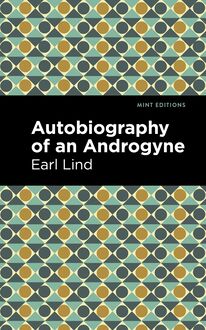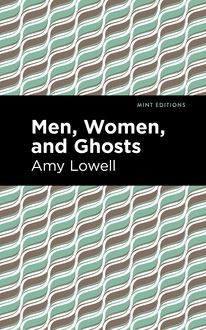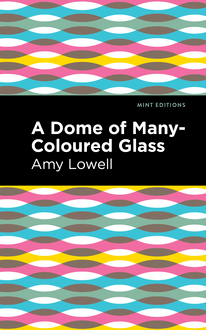-
 Univers
Univers
-
 Ebooks
Ebooks
-
 Livres audio
Livres audio
-
 Presse
Presse
-
 Podcasts
Podcasts
-
 BD
BD
-
 Documents
Documents
-
- Cours
- Révisions
- Ressources pédagogiques
- Sciences de l’éducation
- Manuels scolaires
- Langues
- Travaux de classe
- Annales de BEP
- Etudes supérieures
- Maternelle et primaire
- Fiches de lecture
- Orientation scolaire
- Méthodologie
- Corrigés de devoir
- Annales d’examens et concours
- Annales du bac
- Annales du brevet
- Rapports de stage
La lecture à portée de main
Vous pourrez modifier la taille du texte de cet ouvrage
Découvre YouScribe en t'inscrivant gratuitement
Je m'inscrisDécouvre YouScribe en t'inscrivant gratuitement
Je m'inscrisEn savoir plus
Vous pourrez modifier la taille du texte de cet ouvrage
En savoir plus

Description
The Mighty Atom (1896) is a novel by Marie Corelli. Published at the height of Corelli’s career as one of the most successful writers of her generation, the novel combines realism, social commentary, and family drama to tell a story of morality and the corruption of the youth. Due for reassessment by a modern audience, Marie Corelli’s work—which has inspired several adaptations for film and theater—is a must read for fans of early science fiction. “‘D—d—did I hear you rightly, sir? Ch—child-murder!’ ‘I repeat it, Mr. Valliscourt […] Child-murder! Take the phrase and think it over! You have only one child,—a boy of a most lovable and intelligent disposition […] and you are killing him with your hard and fast rules, and your pernicious “system” of intellectual training.’” Intended as a rallying cry to Christian readers, The Mighty Atom states quite clearly Correlli’s beliefs on progressivism and public education. Raised in a household of atheists, Lionel is left only with science to inform his thoughts and experiences. Early in the novel, his tutor, a religious Scotsman, is dismissed by the boy’s father Mr. Valliscourt. On his way out the door, however, he makes sure to state his mind to his employer. Despite his warning about the boy’s perilous upbringing, Lionel will grow into a nervous, lonely young man. Addressing philosophical, scientific, and religious themes, The Mighty Atom is a moving work of fiction which asks important questions about an emerging modern world. With a beautifully designed cover and professionally typeset manuscript, this edition of Marie Corelli’s The Mighty Atom is a classic work of English science fiction reimagined for modern readers.
Sujets
Informations
| Publié par | Mint Editions |
| Date de parution | 08 juin 2021 |
| Nombre de lectures | 0 |
| EAN13 | 9781513288642 |
| Langue | English |
| Poids de l'ouvrage | 2 Mo |
Informations légales : prix de location à la page 0,0500€. Cette information est donnée uniquement à titre indicatif conformément à la législation en vigueur.
Extrait
The Mighty Atom
Marie Corelli
The Mighty Atom was first published in 1896.
This edition published by Mint Editions 2021.
ISBN 9781513283623 | E-ISBN 9781513288642
Published by Mint Editions®
minteditionbooks.com
Publishing Director: Jennifer Newens
Design & Production: Rachel Lopez Metzger
Project Manager: Micaela Clark
Typesetting: Westchester Publishing Services
to
T HOSE S ELF- S TYLED “ P ROGRESSIVISTS,”
who by precept and example
assist the infamous
cause of
E DUCATION W ITHOUT R ELIGION
and who, by promoting the idea, borrowed from
french atheism, of denying to the
children in board-schools
and elsewhere,
T HE K NOWLEDGE AND L OVE OF G OD
as the true foundation of noble
living,
A RE G UILTY
of a worse crime than murder.
C ONTENTS I II III IV V VI VII VIII IX X XI XII XIII XIV XV XVI
I
A heavy storm had raged all day on the north coast of Devon. Summer had worn the garb of winter in a freakish fit of mockery and masquerade; and even among the sheltered orchards of the deeply-embowered valley of Combmartin, many a tough and gnarled branch of many a sturdy apple-tree laden with reddening fruit, had been beaten to the ground by the fury of the blast and the sweeping gusts of rain. Only now, towards late afternoon, were the sullen skies beginning to clear. The sea still lashed the rocks with angry thuds of passion, but the strength of the wind was gradually sinking into a mere breeze, and a warm saffron light in the west showed where the sun, obscured for so many hours, was about to hide his glowing face altogether for the night, behind the black vizor of our upward-moving earth. The hush of the gloaming began to permeate nature; flowers, draggled with rain, essayed to lift their delicate stems from the mould where they had been bowed prone and almost broken,—and a little brown bird fluttering joyously out of a bush where it had taken shelter from the tempest, alighted on a window-sill of one of the nearest human habitations it could perceive, and there piped a gentle roundelay for the cheering and encouragement of those within before so much as preening a feather. The window was open, and in the room beyond it a small boy sat at a school-desk reading, and every now and then making pencil notes on a large folio sheet of paper beside him. He was intent upon his work,—yet he turned quickly at the sound of the bird’s song and listened, his deep thoughtful eyes darkening and softening with a liquid look as of unshed tears. It was only for a moment that he thus interrupted his studies,—anon, he again bent over the book before him with an air of methodical patience and resignation strange to see in one so young. He might have been a bank clerk, or an experienced accountant in a London merchant’s office, from his serious old-fashioned manner, instead of a child barely eleven years of age; indeed, as a matter of fact, there was an almost appalling expression of premature wisdom on his pale wistful features;—the “thinking furrow” already marked his forehead,—and what should still have been the babyish upper curve of his sensitive little mouth, was almost though not quite obliterated by a severe line of constantly practised self-restraint. Stooping his fair curly head over the printed page more closely as the day darkened, he continued reading, pondering, and writing; and the bird, which had come to assure him as well as it could, that fine bright weather,—such weather as boys love,—might be expected tomorrow, seemed disappointed that its gay carol was not more appreciated. At any rate it ceased singing, and began to plume itself with fastidious grace and prettiness, peering round at the youthful student from time to time inquisitively, as much as to say,—“What wonder is this? The rain is over,—the air is fresh,—the flowers are fragrant,—there is light in the sky,—all the world of nature is glad, and rejoices,—yet here is a living creature shut up with a book which surely God never had the making of!—and his face is wan, and his eyes are sad, and he seems not to know the meaning of joy!”
The burning bars of saffron widened in the western heavens,—shafts of turquoise-blue, pale rose, and chrysoprase flashed down towards the sea like reflections from the glory of some unbarred gate of Paradise,—and the sun, flaming with August fires, suddenly burst forth in all his splendour, Full on Combmartin, with its grey old church, stone cottages, and thatched roofs overgrown with flowers, the cheerful radiance fell, bathing it from end to end in a shower of gold,—the waves running into the quiet harbour caught the lustrous glamour and shone with deep translucent glitterings of amber melting into green,—and through the shadows of the room where the solitary little student sat at work, a bright ray came dancing, and glistened on his bent head like the touch of some passing angel’s benediction. Just then the door opened, and a young man entered, clad in white boating flannels.
“Still at it, Lionel!” he said, kindly. “Look here, drop it all for today! The storm is quite over;—come with me, and I’ll take you for a pull on the water.”
Lionel looked up, half surprised, half afraid.
“Does he say I may go, Mr. Montrose?”
“I haven’t asked him,” replied Montrose, curtly, “ I say you may,—and not only that you may, but that you must! I’m your tutor,—at least for the present,—and you know you’ve got to obey me, or else—!”
Here he squared himself, and made playfully threatening gestures after the most approved methods of boxing.
The boy smiled, and rose from his chair.
“I don’t think I get on very fast,” he said, apologetically, with a doubtful glance at the volume over which he had been poring—“It’s all my stupidity, I suppose, but sometimes it seems a muddle to me, and more often still it seems useless. How, for instance, can I feel any real interest in the amount of the tithes that were paid to certain bishops in England in the year 1054? I don’t care what was paid, and I’m sure I never shall care. It has nothing to do with the way people live nowadays, has it?”
“No,—but it goes under the head of general information,”—answered Montrose, laughing,—“Anyhow, you can leave the tithes alone for the present,—forget them,—and forget all the bishops and kings too if you like! You look fagged out,—what do you say to a first-class Devonshire tea at Miss Payne’s?”
“Jolly!” and a flash of something like merriment lit up Lionel’s small pale face—“But we’ll go on the water first, please! It will soon be sunset, and I love to watch a sunset from the sea.”
Montrose was silent. Standing at the open door he waited, attentively observing meanwhile the quiet and precise movements of his young pupil who was now busy putting away his books and writing materials. He did this with an almost painful care: wiping his pen, re-sharpening his pencil to be ready for use when he came back to work again, folding a scattered sheet or two of paper neatly, dusting the desk, setting up the volume concerning “tithes” and what not, on a particular shelf, and looking about him in evident anxiety lest he should have forgotten some trifle. His tutor, though a man of neat taste and exemplary tidiness himself, would have preferred to see this mere child leaving everything in a disorderly heap, and rushing out into the fresh air with a wild whoop and bellow. But he gave his thoughts no speech, and studied the methodical goings to and fro of the patient little lad from under his half-drooped eyelids with an expression of mingled kindness and concern, till at last, the room being set in as prim an order as that of some fastidious old spinster, Lionel took down his red jersey-cap from its own particular peg in the wall, put it on, and smiled up confidingly at his stalwart companion.
“ Now , Mr. Montrose!” he said.
Montrose started as from a reverie.
“Ah! That’s it! Now’s the word!”
Flinging on his own straw hat, and softly whistling a lively tune as he went, he led the way downstairs and out of the house, the little Lionel following in his footsteps closely and somewhat timidly. Their two figures could soon be discerned among the flowers and shrubs of the garden as they passed across it towards the carriage gate which opened directly on to the high road,—and a woman watching them from an upper window pushed her fair face through a tangle of fuchsias and called,—
“Playing truant, Mr. Montrose? That’s right! Always do what you’re told not to do! Good-bye, Lylie!”
Lionel looked up and waved his cap.
“Good-bye, mother!”
The beautiful face framed in red fuchsia flowers softened at the sound of the child’s clear voice,—anon, it drew back into the shadow and disappeared.
The woods and hills around Combmartin were now all aglow with the warm luminance of the descending sun, and presently, out on the sea which was still rough and sparkling with a million diamond-like points of spray, a small boat was seen, tossing lightly over the crested billows. William Montrose, B.A., “oor Willie,” as some of his affectionate Highland relatives called him, pulled at the oars with dash and spirit, and Lionel Valliscourt, only son and heir of John Valliscourt of Valliscourt in the county of Somerset, sat curled up, not in the stern, but almost at the end of the prow, his dreamy eyes watching with keen delight every wave that advanced to meet the little skiff and break against it in an opaline shower.
“I say, Mr. Montrose!” he shouted—“This is glorious!”
“Aye, aye!” responded Montrose, B.A., with a deep breath and an extra pull—“Life’s a fine thing when you get it in big doses!”
Lionel did not hear this observation,—he was absorbed in catching a string of seaweed, slimy and unprofitable to most people, but very beautiful in his eyes. There were hundreds of delicate little shells knitted into it, as fragile and fine as pearls, and every such tiny casket held a life as frail. Ample material for meditation was there in this tangle of myster
-
 Univers
Univers
-
 Ebooks
Ebooks
-
 Livres audio
Livres audio
-
 Presse
Presse
-
 Podcasts
Podcasts
-
 BD
BD
-
 Documents
Documents
-
Jeunesse
-
Littérature
-
Ressources professionnelles
-
Santé et bien-être
-
Savoirs
-
Education
-
Loisirs et hobbies
-
Art, musique et cinéma
-
Actualité et débat de société
-
Jeunesse
-
Littérature
-
Ressources professionnelles
-
Santé et bien-être
-
Savoirs
-
Education
-
Loisirs et hobbies
-
Art, musique et cinéma
-
Actualité et débat de société
-
Actualités
-
Lifestyle
-
Presse jeunesse
-
Presse professionnelle
-
Pratique
-
Presse sportive
-
Presse internationale
-
Culture & Médias
-
Action et Aventures
-
Science-fiction et Fantasy
-
Société
-
Jeunesse
-
Littérature
-
Ressources professionnelles
-
Santé et bien-être
-
Savoirs
-
Education
-
Loisirs et hobbies
-
Art, musique et cinéma
-
Actualité et débat de société
- Cours
- Révisions
- Ressources pédagogiques
- Sciences de l’éducation
- Manuels scolaires
- Langues
- Travaux de classe
- Annales de BEP
- Etudes supérieures
- Maternelle et primaire
- Fiches de lecture
- Orientation scolaire
- Méthodologie
- Corrigés de devoir
- Annales d’examens et concours
- Annales du bac
- Annales du brevet
- Rapports de stage












